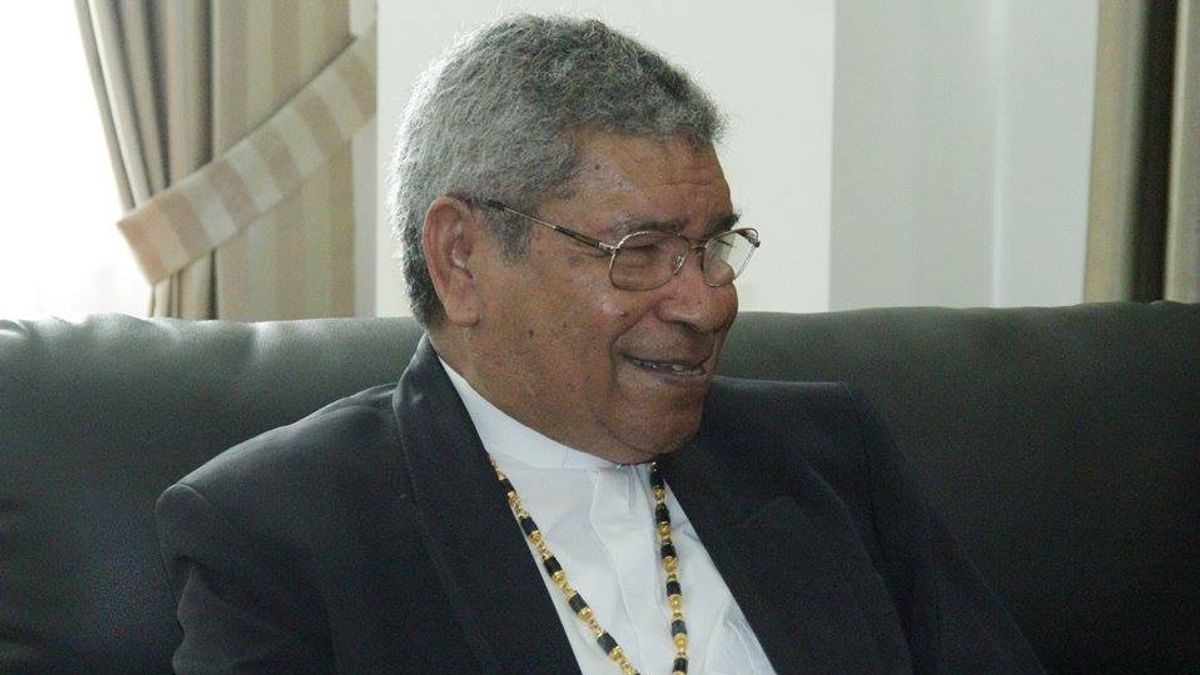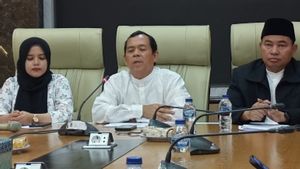JAKARTA - The Vatican confirmed it had imposed sanctions on Nobel laureate winner Bishop Carlos Ximenes Belo, over allegations of sexual harassment of a child in the 1990s.
Reporting from Vatican News September 30, Vatican Press Office Director Matteo Bruni said, "Congregation for Teaching Faith was first involved in this case in 2019."
"In connection with the allegations received regarding the behavior of the bishop, in September 2020 the Kongregation imposed certain disciplinary restrictions on him. This includes restrictions on his movements and the implementation of his services, a ban on voluntary contact with minors, interviews and contacts with Timor Leste," Bruni said.
Not only once, the sanctions are said to have been strengthened a year later, with Bishop Belo said to have accepted officially.
"In November 2021, these steps were modified and strengthened. On both occasions, the move was officially accepted by the bishop," he said.
Previously, Dutch media De Groene Amsterdammer published anonymous accusations of sexual abuse of minors in the 90s by East Timor Bishop Carlos Filipe Ximenes Belo.
It was stated in an article entitled 'What I want is apologizing' which was broadcast on September 28. Bishop Belo himself is a former Administrator of Apotstolic Dili, Timor Leste or Timor-East Timor.
He received international recognition for his efforts to advance respect for human rights, as well as self-determination by the Timor Leste Rakyar.
De Groene said the first accusations against Bishop Belo emerged in 2002. That same year, John Paulus II, in his papal recent years, accepted the resignation of Bishop Belo as administrator of Dili's liabilities, Timor Leste.
This is said to be "according to the 401 canon, alinea 2 of the Kanonic Code," which shows, "a diosean bishop who becomes less able to fulfill his position due to illness or other serious reasons, is sincerely asked to submit his resignation from office."
In January 2003, Belo left Timor Leste for Portugal. In June 2004, he was assigned as an assistant to the imam in Maputo, Mozambique, where he also devoted himself to teaching katekismus. He then returned to Portugal.
According to a statement by Bishop Norberto Do Amaral, president of the Timor Leste Bishops' Conference, also reported by De Groene, Belo subject to travel restrictions imposed by the Vatican.
Citing the ABC, the Vatican did not provide an explanation as to why Saint John Paul II allowed bishops to resign as church heads in Timor-Leste two decades earlier in 2002, or why church authorities allowed it to be sent to Mozambique, where he worked with children.
The news shocked Timor-Leste, where Bishop Belo was seen as a hero who helped win the country's independence from Indonesia.
"We are also surprised to hear this news," said an official at Dili's Archdiocese, who spoke to The Associated Press on condition of anonymity.
De Groene Amsterdammer said his investigation had revealed that Belo's alleged abuse was known by the Timor-Leste government and humanitarian workers and churches.
"Up rape and sexually harassing me that night," the victim was quoted as saying.
"In the morning he told me to leave. I was afraid because it was still dark. So I had to wait before I could go home. He also left money for me," continued the victim.
"That's meant to keep my mouth shut," he said.
Not only that, the media said his investigation also indicated that Bishop Belo also abused other boys in the 1980s when he worked at an educational center managed by Salesian.
It is known, Bishop Belo won the Nobel Peace Prize in 1996, to campaign for a just and peaceful solution in the country's struggle to break away from Indonesia.
The Nobel Committee has refused to respond to the allegations, in addition to saying in general it did not comment on previous winners.
The English, Chinese, Japanese, Arabic, and French versions are automatically generated by the AI. So there may still be inaccuracies in translating, please always see Indonesian as our main language. (system supported by DigitalSiber.id)













